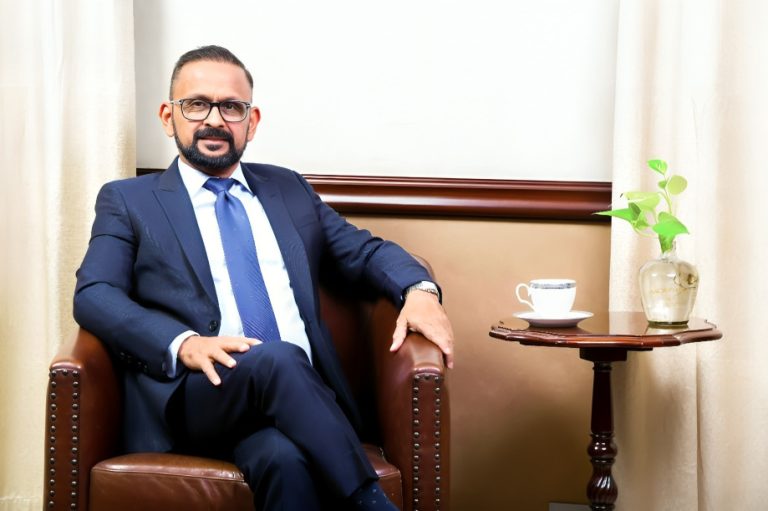With over 325,000 meals served daily and a robust workforce of 4,000 employees, Rassense has emerged as a market leader by blending cutting-edge technology with a deep understanding of regional culinary nuances. Sanjay Kumar, CEO & MD of Rassense Pvt Ltd, is steering the company to unparalleled heights in India’s contract food services sector. Under his visionary leadership, the company has leveraged AI, automation, and strategic partnerships to revolutionise operational efficiency, transparency, and customer satisfaction. In an exclusive conversation with Asmita Mukherjee, Kumar sheds light on Rassense’s rapid growth trajectory, the integration of sustainable practices, the strategic use of technology, and the company’s ambitious revenue targets for 2026.
With Rassense serving over 325,000 meals daily and expanding its workforce to over 4,000 employees, what are the key factors driving this rapid growth, and how do you envision sustaining it in the coming years?
Our growth rests on three pillars. First, robust macroeconomic indicators are driven by manufacturing growth and large capex investments. Second, the booming automotive sector, fuels above-average industry growth for Rassense.
Third, and most crucially, we identified a market gap for serving Indian cuisine with regional flavour nuances—something only an Indian company can truly master. Unlike Western models reliant on automation for food production, we use automation for processes while preserving taste. This ability to adapt to diverse regional cuisines—North, West, South—has become a significant advantage, meeting client expectations and elevating the dining experience.
Could you elaborate on Rassense’s core business model and how it leverages technology and AI to enhance operational efficiency and customer satisfaction?
Early in our journey, we recognized two strategic advantages. First, as an Indian company, we deploy tech solutions faster since we don’t require global platform endorsements and are a nimble organization. For instance, we developed and implemented a proprietary digital solution for real-time monitoring of raw material rejection across all on-site kitchens nationwide, achieving this far quicker than global corporations.
Additionally, our millennial-led executive committee, where 90% are shareholders, drives innovation and rapid execution. This enabled us to pioneer IoT-enabled waste trackers, fostering awareness of food waste and promoting responsible consumption. Agility and empowerment fuel our industry leadership.
Following the merger of CRCL and We Go Infinity, and the subsequent funding from Spark Capital’s AIF, how has Rassense utilised these investments to bolster its market position and infrastructure?
We did not pursue a merger and dropped the acquisition of We Go Infinity due to compliance concerns. Instead, we executed India’s first leveraged buyout in the food services sector with Spark Capital AIF, reconstituting CRCL into a private limited company. This transformation broadened our management structure, established a national footprint, and allowed us to choose clients aligned with our QHSE standards and employee welfare values.
Rassense has exited prestigious brands unwilling to prioritize these values or move beyond the L1 pricing model. We actively work with clients to promote investment in quality food services, particularly for blue-collar employees. This mindset shift is gaining traction, with organizations increasingly valuing premium offerings.
By leveraging technology and understanding Indian cuisine deeply, we differentiate ourselves, securing premium business and redefining industry benchmarks. The concept is clear: only a native provider can truly excel in serving local culinary traditions.
What role do strategic partnerships play in Rassense’s expansion plans, and are there any notable collaborations that have significantly contributed to your service offerings?
Indeed, we believe that as an Indian company, we are well-placed to fast-track strategic partnerships.
To name a few, we partnered with Effortless to introduce a digital approval system through a simple mobile application that allows our employees to click a picture and upload it through their phones for processing their expense statements without pre-approvals. Since each employee has a budgetary code linked to the annual operating plans fed into the SAP architecture, this reduces the administrative need for monitoring expenses while placing greater trust in employees’ integrity.
Similarly, our partnership with Micro Go makes us one of the first companies to install an IoT-enabled waste management system at some of our key client sites.
These are just two examples. There are several others where we’ve worked with different organizations locally to deploy local solutions in the business we do.
What revenue targets are you aiming for in 2026?
We are proud that Rassense is set to close its FY25 numbers at approximately 482 crores. Next year, we will not only cross the 550-crore mark but also improve our margins. While our growth has been spectacular, we have remained focused on ensuring profitability.
It is one of the rarest examples in the Indian business landscape of a company turning a profit in its first year—especially after being funded through an AIF, which posed its challenges. We have never seen formal credit flow into this sector. Securing that and growing revenue alongside it, whilst successfully managing the interest cost has not been an easy journey for the organization.
Having achieved what we have, we can proudly say that it’s the first time in the Indian contract food service industry that an Indian company has crossed the 450-crore revenue mark.


